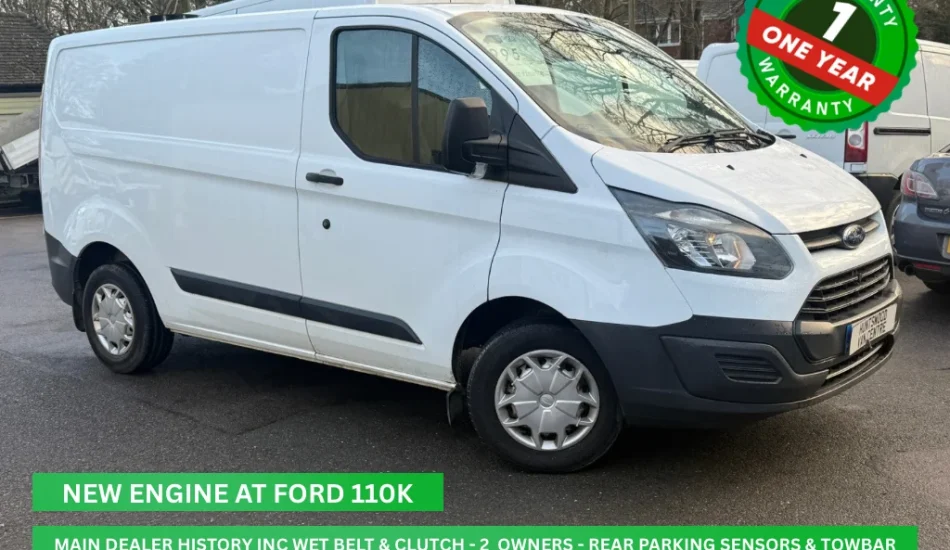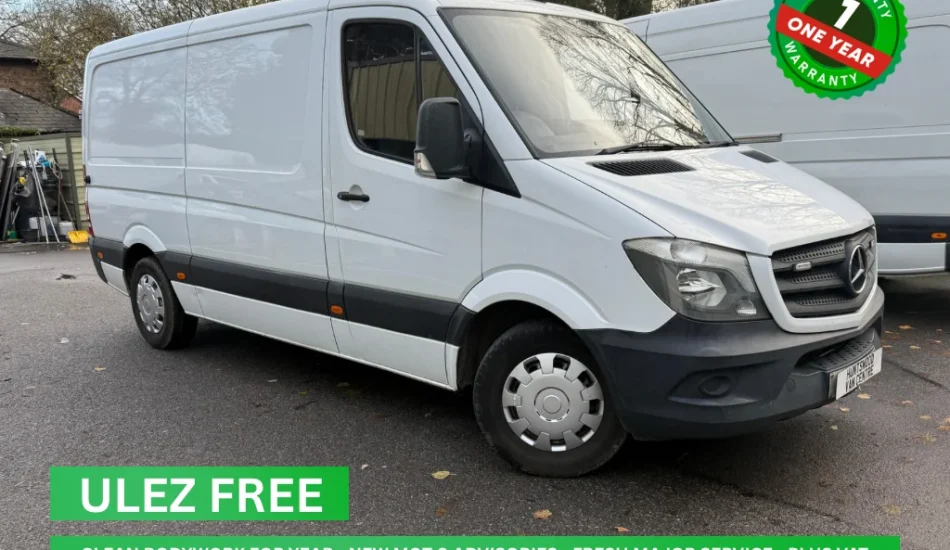
5 Key Factors to
Consider Before Buying a New Van
Before investing in a new van, there are a number of factors to look at, which we’ll explore in this blog.
Whether you run a small business, are a tradesperson, or need a versatile vehicle, our van centre has so many different options available. Here are five things to consider before beginning your search:
- What will be its purpose, and what does the payload capacity need to be?
Payload capacity refers to the maximum weight that the van can safely carry, taking into account both the cargo and passengers.
If you are transporting heavy goods or equipment, you’ll need a van with a higher payload capacity. Overloading a van can not only cause damage to the vehicle but also result in legal penalties and safety risks.
For example, tradespeople who need to carry tools, materials, and equipment may require a van with a payload capacity of 1,000kg or more. On the other hand, if you’re mainly transporting lighter goods or using the van for personal use, a lower payload capacity might be enough.
- How much will it cost to run, and what is the fuel efficiency?
Running costs are a significant consideration for any vehicle, and vans are no exception. In the UK, where fuel prices can be high and there are strict environmental regulations, fuel efficiency should be a top priority.
It’s important to remember that fuel efficiency varies widely between different van models and engine types. Diesel engines have traditionally been popular for those who want a superior fuel economy, especially for long-distance driving.
However, thanks to increasing concerns about emissions and the availability of low-emission zones (LEZs) in cities like London, petrol or even electric vans are now often more cost-effective in the long run.
Maintenance costs also play a crucial role in running expenses. Huntswood Van Centre is happy to talk you through the different van models and consider the availability of parts and services. Some manufacturers may offer warranties or service packages that could reduce long-term costs.
Remember to consider the price of fuel, maintenance, insurance and road tax, so you know how much the van will cost in the long-term.
- What size and dimensions do you need?
The size of the van is another critical factor, particularly in relation to the nature of your work and the types of places you’ll be driving. Fortunately, Huntswood Van Centre enables you to easily browse vehicles by body type, saving you time and hassle.

The size affects not only how much cargo you can carry but where you can drive and park. Larger vans may offer more space, but they can be challenging to manoeuvre in cities with narrow streets and limited parking.
You should always consider the height and length of the van. High-roof vans provide additional vertical space, which is beneficial if you need to stand up inside the vehicle or stack goods. However, taller vans may be restricted in certain areas, such as car parks with low clearance.
If your business requires a mobile workshop or storage space, the layout and the ability to customise the van’s interior (with shelving or racks for instance) should also be important considerations.
- What technology and safety features do you need?
Newer vans come equipped with a range of technology and safety features that can enhance both our driving experience. When choosing a van, it’s essential to consider which of these features are most important for your needs.
Safety features such as ABS (Anti-lock Braking System), ESC (Electronic Stability Control), and airbags are now standard on most new vans, but it’s worth checking for additional features like lane-keeping assist, adaptive cruise control, and automatic emergency braking. These can significantly reduce the risk of accidents, especially on busy UK roads.
Technology such as infotainment systems, Bluetooth connectivity, and satellite navigation can improve your driving experience, particularly if you spend long hours on the road. Additionally, features like rear-view cameras and parking sensors can make manoeuvring the van easier and safer.
- What are your financing and purchase options?
How you plan to finance the purchase of a van is a critical factor. Vans can be a significant investment, so it’s important to explore all available options.
Buying outright allows you to own the van immediately, but it requires a substantial upfront payment. This option may be suitable if you have the capital available and prefer not to have ongoing monthly payments.
Leasing or finance agreements can spread the cost over time, making it more manageable. Leasing is particularly attractive for businesses that prefer to upgrade their vehicles every few years. However, keep in mind that with a lease, you won’t own the van at the end of the term.
Government incentives and grants for low-emission vehicles might also be available, especially if you are considering an electric or hybrid van. These incentives can reduce the overall cost and make greener options more financially viable.
Explore our latest stock of vans online. Or don’t hesitate to contact our team for more information.




